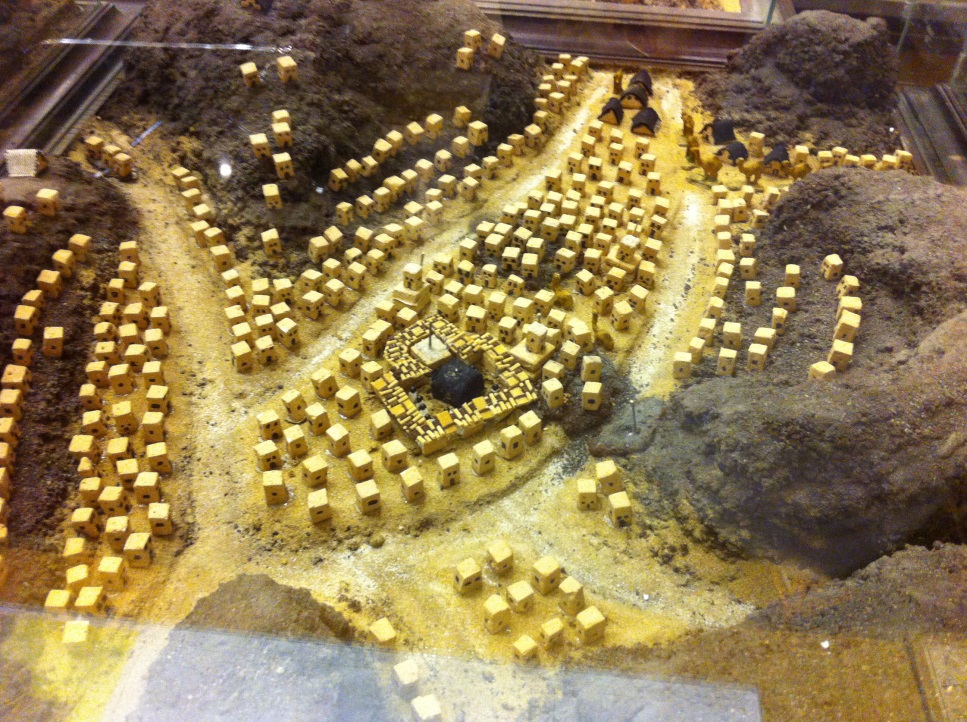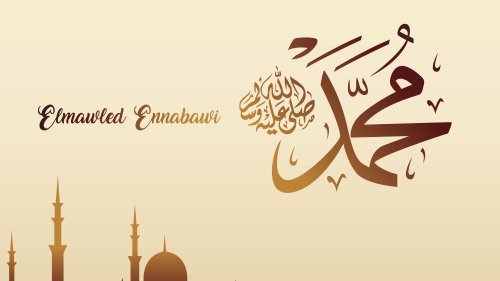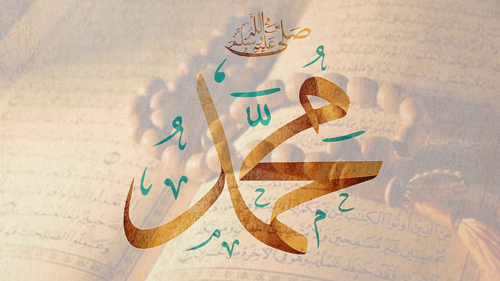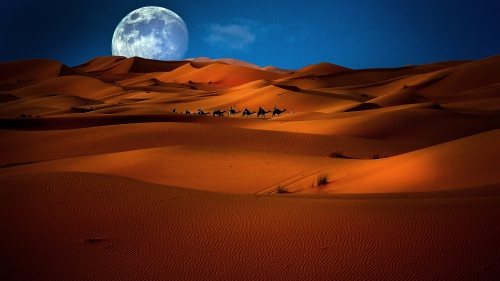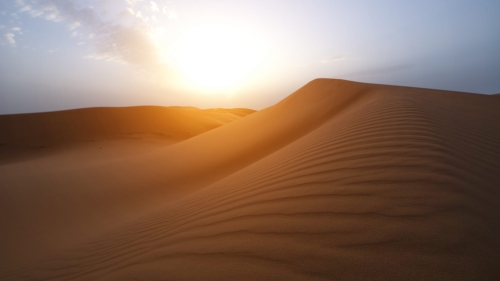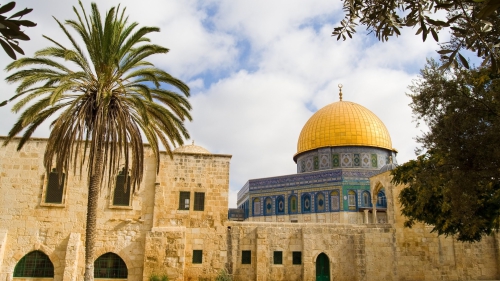Appreciating the Ka'bah

Prior to the epoch of Prophets Ibrahim and Isma'il, there existed only Makkah sanctuary (haram) and the location as well as foundations of the Ka'bah (al-Masjid al-Haram), which had been instituted or appointed for humankind as early as when God created the heavens and the earth. The Qur'an reveals: "Indeed, the first House (of worship) established for mankind was that at Makkah -- blessed and a guidance for the worlds." (Alu 'Imran, 96) The Prophet (pbuh) also confirmed: "Allah made this town (Makkah) sacred on the day He created the earth and the heavens; so it is sacred by the sacredness conferred on it by Allah until the Day of Resurrection... " (Sahih Muslim, Hadith No. 3139) As a result, the prophets before Ibrahim and Isma'il and their followers -- just like those who came after them -- were to face the place (the site of the Ka'bah, its foundations and the haram) in their prayers. When needed or commanded, a form of the pilgrimage (Hajj) to the place, too, was undertaken.
When completed, the Ka'bah's dimensions are believed to have been as follows. It was a cubical structure with thirty-two cubits (one cubit is about half a meter) between the corner with al-Hajar al-Aswad or the Black Stone and the other corner facing Syria; twenty-two cubits between this Syrian and the West facing corner; thirty-one cubits from the latter to the corner facing the direction of Yemen, and twenty cubits between this Yemeni corner and that with the Black Stone. The building was nine cubits high, was provided with two entrances: one on the side between the Black Stone and the Syrian corner, and the other on the opposite side flanked by the Western corner and the corner facing Yemen, but it had no ceiling. The entrances were formed directly from the ground. They were just open outlines in the walls. There were no doors to block off or allow access to the building. People would enter the Ka'bah from one entrance and exit from the other. A well was excavated inside the Ka'bah to the right of the entrance that was in the wall between the Black Stone and the Syrian corner. It was used as a store, or a depository, where gifts donated to the Ka'bah were kept. It was 3 cubits deep.
The Ka'bah was an unpretentious stone structure. From the inception till the completion of construction, Ibrahim and Isma'il are believed to have been laying one course, or level, of stones a day. However, it is unclear whether that applied to the whole building, or individual walls. No mud was used either for bricks or as plaster for coating the walls. Since it was roofless and its two entrances had no doors, neither was timber needed. The stone over which Ibrahim stood and built is called maqam Ibrahim (Ibrahim's station). It is still in existence today and is revered by all Muslims. Even some religious rituals are directly associated with it.
Ibrahim is said to have built the Ka'bah using building materials from five special earthly mounts: Hira' in Makkah, Tur Sina' in the Sinai Peninsula of Egypt, Tur Zayta' in Palestine, Jabal Lubnan in Lebanon and al-Judiyy which is a mount at which Prophet Nuh's ark came to rest after the great flood, demonstrating thereby its universal character and appeal, as well as penchant for bringing together and reconciling between people of different backgrounds and dispositions. The place thus was a catalyst of peace and security; it was an eternal beacon of human hope and optimism. Based on the historic significance of those mountains and hills, some of whose parts had been integrated into the form and configuration of the Ka'bah, the Ka'bah could also be regarded as a symbol and microcosm of entire human history. It should be seen as an epitome of perpetual human struggle, human civilizational challenges and victories.
Makkah is an uncultivated and barren valley surrounded by low rocky hill ranges. That the Ka'bah was originally built as an unpretentious stone structure was extremely apt, making it appropriate to its time, place and people. The Ka'bah was in total harmony with its natural environment. It grew, so to speak, out of the site. It at once symbolized and reverberated Makkah's attribute as haram (blessed sanctuary). In consequence, it always seemed naturally beautiful, hence sustainable and even organic, satisfying physical and spiritual needs. It exuded an aura of veneration, lure, awe and spiritual and psychological serenity. Due to all this, plus the supplication of Ibrahim that the believing human hearts incline towards it, the Ka'bah was always dearly loved and longed for. Because it is a result of a direct heavenly initiative and involvement, the Ka'bah's intrinsic charm and beauty were always beyond description. Lost for words, while watching, touching or circumambulating it, most people tend to give in to the stream of abundant but incommunicable spiritual, psychological and even intellectual emotions the circumstances generate. As if they all sense that being silent and self-effacing, acknowledging the supernatural and divine overarching character of the Ka'bah (al-Masjid al-Haram), while juxtaposing it with their flaws, inadequacies and this-worldliness, is the best and most profitable mood. Any other approach is set to divest visitors and worshippers of some of the boons they have come for and were instinctively looking forward to procuring. Feeling thus hopeless, some people resort to closing their eyes and try to "watch" and "embrace" the Ka'bah rather by means of their elated hearts and ecstatic souls. That way, all the inapt and under the circumstances "impairing" physical senses are temporarily shut, and through that metaphysical God-granted capacity that graces each and every human creature, one's self is attempted to be elevated to a higher spiritual vintage point from where the Ka'bah could be "seen" and experienced better. Such is also an attempt intended to identify and equate one's ontological meaning and purpose with the ontological meaning and purpose of the Ka'bah and al-Masjid al-Haram. Losing completely one's self inside the infinite spiritual domains of the Ka'bah and al-Masjid al-Haram, it goes without saying, is the best way for a person to find and experience the quintessence of his own being, existence as a whole and the Ka'bah phenomenon itself.
|
|
| An artist's imaginary rendition of the valley of Makkah after Prophets Ibrahim and Isma'il had built the Ka'bah. Courtesy of the Dar al-Madinah Museum, Madinah, Saudi Arabia. |
Furthermore, the Ka'bah (al-Masjid al-Haram) is the spiritual compass point of believers in every time and place. Not only that they face its direction in their daily prayers, but also they use it as a source of endless life inspiration and guidance. The Qur'an is explicit that al-Masjid al-Haram has been "established for mankind... blessed and a guidance (huda) for the worlds." (Alu 'Imran, 3:96). At the same time, the Qur'an also makes known that Adam, upon descending on the earth to undertake his vicegerency mission (khilafah), was informed by God that "... surely there will come to you a guidance (huda) from Me, then whoever follows My guidance, no fear shall come upon them, nor shall they grieve." (al-Baqarah, 2:38). While the two forms of guidance are by no means synonymous, they surely complement each other in the sense that the former signifies both the outcome and embodiment of the latter and its actualization on earth. Thus, the existence of Adam and his life mission, and the existence of al-Masjid al-Haram, at least in the form of direction, site and foundations, could not be separated from each other.
During the earliest life episodes, firstly in the Garden then on the earth, the purpose and role of Iblis (Satan) came also to the fore. Essentially, his existence and life mission stand in contrast to those of Adam and his descendants. It all started when Iblis refused to submit to the Will of God and prostrate before Adam, following which the perennial antagonism between Iblis and his legion, on the one side, and Adam and his offspring, on the other, was set in motion forever. The Qur'an sums up those decisive events as follows: "And (mention) when We said to the angels: 'Prostrate before Adam'; so they prostrated, except for Iblis. He refused and was arrogant and became of the disbelievers." (al-Baqarah, 2:34); "(Allah) said: 'What prevented you from prostrating when I commanded you?' (Iblis) said: 'I am better than him. You created me from fire and created him from clay.' (al-A'raf, 7:12); "But Satan caused them to slip out of it (the Garden, Jannah) and removed them from that (condition) in which they had been. And We said: 'Go down, (all of you), as enemies to one another, and you will have upon the earth a place of settlement and provision for a time." (al-Baqarah, 2:36); "(Satan) said: 'Because You have put me in error, I will surely sit in wait for them on Your straight path. Then I will come to them from before them and from behind them and on their right and on their left, and You will not find most of them grateful (to You).' (Allah) said: 'Get out of Paradise, reproached and expelled. Whoever follows you among them -- I will surely fill Hell with you, all together'." (al-A'raf, 16-18); "(Iblis) said: 'My Lord, because You have put me in error, I will surely make (disobedience) attractive to them on earth, and I will mislead them all, except, among them, Your devoted servants.' (Allah) said: 'This is a path (of return) to Me (that is) straight. Indeed, My servants -- no authority will you have over them, except those who follow you of the deviators. And indeed, Hell is the promised place for them all'." (al-Hijr, 15:39-43).
Satan's net ambitions and targets were always to divert people at all costs from worshiping their Creator and Master towards following and worshipping himself. God thus cautions: "Did I not enjoin upon you, O children of Adam, that you not worship Satan - (for) indeed, he is to you a clear enemy -- and that you worship (only) Me? This is a straight path. And he had already led astray from among you much of creation, so did you not use reason?" (Ya Sin, 36:60-62) Satan displayed that he is ready to stop at nothing and spare no deceitful means in order to achieve his goals. In addition, accepting to be unrepentant mischievous rebel, he asked God for postponement of his affair. In other words, he asked for respite, reckoning greedily that such would imply having control of the notion of time. He said to God: "Give me respite till the day they are raised up" (al-A'raf, 7:14), i.e., till the Day of Judgment. However, since granting Satan the wish would imply exempting him from death, something that was incompatible with some of the most fundamental rules and laws of existence, God rejected the appeal. Rather, He postponed Satan's affair only "till the day of the time appointed (known only to the omniscient God)." (al-Hijr, 15:38) Self-deceived, Satan then attempted to exert control of the notion of space as well by outlining his strategies as approaching man from all his sides: from before and behind him, and on his right and left.
His exhibition of his insatiability, self-confidence and enthusiasm notwithstanding, Satan with his optimism and predictions, when it comes to God's true servants, was wide of the mark. That was so because whoever decides to stoically fight and defeat Satan can easily do so by the promised grace and help of God. Only those who allow Satan to manipulate them with his cheap tricks and swindles and impair their senses and intelligence, debasing thus their souls with folly, are they who follow him and think they are in the right.
Indeed, the existence and function of al-Masjid al-Haram reveal much about the mentioned life paradigm. In order to counter Satan's horizontal advances, believers from all sides of the earth constantly face the Holy Mosque (qiblah), both physically with their actual faces and spiritually with the "faces" of their hearts. That allows them either to sidestep or impede Satan's operations from the front and most important human side. Satan for that reason referred to the front side as the first and foremost side from where he promised to come and try to delude humankind. As regards the challenges posed by Satan's assaults from the remaining three and somewhat inferior horizontal human sides, believers, by remaining steadfast on the right and straight path, always facing the right direction (qiblah) in all affairs of theirs, that is, the spiritual direction of righteousness and truth and the physical direction of al-Masjid al-Haram -- they possess what it takes to easily cope with them too. They possess unified life vision, purpose and objectives, direction and point of reference. So concerned are they with challenges ahead, directly facing and overcoming them on their path towards the spiritual fulfillment, that believers have no, or very little, time to worry about "side" or relatively secondary issues. Their connection with their qiblah and point of reference is direct and undeviating, rather than indirect or roundabout. Genuine believers are thus said to be a most confident, optimistic, honest and principled group. Straightness, perseverance, quality planning and management, and clear objectives-oriented dynamism are the chief traits of everything they do; so are courage and valor, on account of true believers being able to see and face head-on all their adversities. Needless to say that people fear most those things and occurrences which they can neither witness, foresee, nor come fully to terms with. Uncertainties, volatilities and doubts are some of man's greatest foes. They denote most serious impediments to moving ahead and success. At any rate, Satan or Iblis was bent on doing that which one of the words whence his name has been derived, implies. That word is ablasa and means among other things to confound.
It is due to all this that Muslims are commanded to face, or seriously consider, the qiblah direction in their prayers, when they supplicate, when they sleep, when they bury their dead, when they perform various religious rituals, when they plan and design their built environment, etc. On that score does the Qur'an use the expressions of "submitting one's face to God while being a doer of good" (al-Baqarah, 2:112), and "directing one's face towards the religion, inclining to truth" (al-Rum, 60:30) as metaphors for an exemplary state of one's religiosity. For obvious reasons, furthermore, Muslims are advised not to face the qiblah direction, nor turn their backs to it, whenever they defecate or urinate. Planning and designing toilets in Muslim buildings thus need to take the matter into consideration, even though a majority of Muslim scholars are of the view that not facing the qiblah side, nor turning the back towards it, while answering the call of nature, is a preferable thing, not an obligation, and violating it incurs no sin. In the same vein, when entering the toilet, Muslims are advised to recite: "(In the name of Allah). O Allah! I take refuge with you from all evil and evil-doers," the greatest one of which is Satan. Muslims are furthermore forbidden to spit in their prayers towards the qiblah. The Prophet (pbuh) said on this: "If anyone of you stands for the prayer, he is speaking in private to his Lord, (or) his Lord is between him and the qiblah, therefore, he should not spit towards the qiblah, but he could spit either on his left or under his foot. " Then the Prophet (pbuh) took the corner of his sheet and spat in it, folded it and said: "Or do like this." (Sahih al-Bukhari, Hadith No. 409) For the identical reasons relating to its rank and importance, certainly, the qiblah issue was one of the three things for which the People of the Book were especially jealous of Muslims, as divulged by Prophet Muhammad (pbuh).
Hence, Satan was set to lose where he thought was strongest. Additionally, but most painfully, he omitted the ground or lower, as well as the above or upper sides of man, where, though, man's strengths and Satan's weaknesses are furthermost. Satan did not mention the lower or ground side of man due to his arrogance and contemptible view of man, but that exactly is the spot and dimension of prostration as a sign of one's ultimate submission to the Will and Word of God, and of a person's spiritual growth and accomplishments. It also signifies a platform from where one rises to and conquers other dimensions of life. Moreover, Satan could not -- rather than did not -- mention the above or upper side of man because he was not allowed to do so. To rise above especially believing men and women, both conceptually and realistically, is just a wish and fantasy of Satan, never a real thing. The above vertical direction is left to man to freely and unhindered rise, transcending all the inhibiting levels and dimensions of existence, if he only so wills. If he so decides, the sky is the limit. Nothing stands between him and his trajectory towards the spiritual fulfillment.
If all this shows one thing then it is the indisputable truth that Satan was so wrong in his assessments, strategies and predictions, insofar as genuine servants of God and their fates were concerned. He wanted the notion of time, but little did he know that believers, though trapped inside its powerful sway and constraints, operate only for the interests of the world of the transcendental as well as eternal meanings and realities, patiently and ardently looking forward to joining it, and using the former merely as a means for achieving the latter. It is in this sense that believers are allegorically said to be existing at another level. It is Satan, not them, who is entrapped in the finity of the terrestrial concept of time. As a small digression, in the Qur'anic chapter al-'Asr (Time), the idea of time is closely linked to the idea man and his potential existential loss, "... except for those who have believed and done righteous deeds and advised each other to truth and advised each other to patience." (al-'Asr, 103:3). It stands to reason that based on the chapter in question, he who allows time to absolutely control and restrain him, is a loser. But he who manages to "control" time and sets himself "free" from its bounds - such as what believers normally do -- is only saved. There are many other verses in the Qur'an which tend to demystify the notion of time and present it as something relative rather than absolute, as an accident rather than a substance. The same applies to the concept of space as well.
Furthermore, Satan wanted the notion of space, but chose its dimensions where believing men and women are least vulnerable. He left out man's lower and upper sides not knowing that it is exactly those sides where believers enter and vertically rise through the degrees and stations of the spiritual kingdom, attaining in the process ultimate felicity and spiritual excellence. The spiritual life therefore is in a state of constant ascent primarily via regular prostrations in prayers. The Prophet (pbuh) is thus reported to have said that the prayer (salah) is the ascension (mi'raj) of a believer. It is likewise unsurprising that the prayer is the main pillar of the whole body of the religion of Islam, as well as that the culmination of each and every prayer is prostration (sajdah) on the ground. It was reported, accordingly and most fittingly, that when a man reads in the Qur'an a prostration verse and then prostrates to God, Satan isolates himself and in despair weeps and exclaims: "A son of Adam was ordered to prostrate and he did so; I too was ordered to prostrate but refused to do so. Consequently, for the son of Adam is the reward of Paradise and for me the punishment of Hell." Without a doubt, just as Satan's greed, arrogance and flawed judgments were behind his mischievous and rebellious tendencies, his outright ignorance and one-dimensionality, mainly, were behind his faulty and ineffective existential strategies meant for believers. They were no match for the latter's intellectual and spiritual multidimensional competence.
|
|
| An artist's imaginary rendition of the city of Makkah during the time of Qusayy b. Kilab. Courtesy of the Dar al-Madinah Museum, Madinah, Saudi Arabia. |
As an illustration of the nature and intensity of that perennial warfare on earth, and the nature of its outcomes, a companion Abu Hurayrah narrated that the Prophet (pbuh) said: "A strong devil from the jinns called 'Ifrit came to me yesterday suddenly, so as to spoil my prayer, but Allah enabled me to overpower him, and so I caught him and intended to tie him to one of the pillars of the mosque so that all of you might see him, but I remembered the invocation of my brother (Prophet) Sulayman: 'And grant me a kingdom such as shall not belong to any other after me,' (Sad, 38:35), so I let him go cursed." (Sahih al-Bukhari, Hadith No. 634) It is noteworthy that the Prophet (pbuh) was in a state of prayer facing the qiblah when the incident occurred. Hence, the main focus of the devil's attempts to unsettle the Prophet's concentration must have been the Prophet's front site.
On the Day of Judgment when all masks will fall, everything will become clear and the matters pertaining to the terrestrial life will be conclusively and justly decided. Satan, too, will then have to admit the truth, outlining to those who followed him why and where things went wrong. To this effect God says in the Qur'an: "And Satan will say when the matter is decided: 'It was Allah Who gave you a promise of Truth: I too promised, but I failed in my promise to you. I had no authority over you except to call you, but you listened to me; then reproach not me, but reproach your own souls. I cannot listen to your cries, nor can you listen to mine. I reject your former act in associating me with Allah. For wrong-doers there must be a grievous Chastisement." (Ibrahim, 14:22).
Due to the central importance of al-Masjid al-Haram in the lives of believers, the meaning of it as the qiblah to be faced from anywhere in the world, is readily apparent. As far as the significance of the downward or the ground side of believers' existence is concerned - as a symbol and direction of prostration (sajdah) -- it could be, and God knows best, that the same has been symbolically suggested by the continuous emphasis on the foundations of the Ka'bah, the Sacred Mosque that existed since its inception only for the sake of accommodating and facilitating the needs of people. Raising the Ka'bah on its holy foundations might have also indicated the intellectual and spiritual growth of believers and their rising through a range of degrees and stations. That the Ka'bah was built roofless could likewise be interpreted in the spirit that there are neither limits nor obstacles in believing men's and women's continuous progression towards spiritual perfection. This close correlation between the Ka'bah (al-Masjid al-Haram), as a means, and the case of the spiritual progression and fruition of believers, as an end, was clearly demonstrated by Prophet Muhammad (pbuh) who, when once circumambulated the Ka'bah, affirmed the immensity of its reputation, character and honor by saying to it: "How wonderful you are and how wonderful your fragrance is! How great you are and how great your honor is!" But then he added, demonstrating thereby the truest transcendental purpose of al-Masjid al-Haram: "By Him in Whose hands Muhammad's soul is, indeed the honor of the believer is greater with God than your honor: his property, his blood and that only good (positive) is assumed about him."
Accordingly, as stressed earlier, al-Masjid al-Haram or the Ka'bah is not about stones, timber and other building materials of which it might have been composed. The matter was always spiritual, rather than physical, in the sense that the form of the Ka'bah, and later its al-Masjid al-Haram, followed, facilitated and promoted its primordial humankind-oriented function with all of its dimensions: corporeal, intellectual and spiritual. Al-Masjid al-Haram was always about its site in particular and the site of Makkah's haram in general, its direction, safety and incalculable blessings (barakah). Moreover, it was about the place of annual Hajj, the symbol of unfaltering obedience to God and His injunctions, and about the sign as well as source of strength for warding off Satan and his advances. It is not surprising therefore that one of the key Hajj rituals is ramy al-jamarat that involves stoning the three pillars that represent Satan. The ritual is conducted in the locality of Mina just east of Makkah for three or four consecutive days starting with 'Id al-Adha or the Feast of the Sacrifice. It is recounted in the books of history that when the angel Jibril taught Ibrahim the rites of Hajj, subsequent to his construction of the Ka'bah, Satan appeared to him three times, seeking to disturb and demoralize him. At each of the appearances, Jibril asked Ibrahim to pelt or stone Satan. So Ibrahim threw seven stones for each appearance at him. After Satan had been stoned for the third time, he finally, defeated, withdrew from Ibrahim.
That particular Hajj ritual has been prescribed to commemorate Ibrahim's victory over Satan and to remind every pilgrim that he or she has a similar battle of his or her own. The battle, of course, is primarily about Satan. But, in addition, it is also about repudiating and casting aside one's low desires and wishes through which Satan tends to penetrate and dominate one's self. While every believing person intends to initiate and keep up sound relationships with physically and spiritually the safest al-Masjid al-Haram sanctuary and its direction, creating then from his personality a safe haven for all forms of goodness and virtue, Satan, on the other hand, craves and plots to severe such relationships, isolate and make a person directionless and lost, and then embark on crafting of his being a sanctuary for himself and all forms of felony and vice.
*****
Dr. Spahic Omer, a Bosnian currently residing in Malaysia, is an Associate Professor at the Kulliyyah of Architecture and Environmental Design, International Islamic University Malaysia. He studied in Bosnia, Egypt and Malaysia. His research interests cover Islamic history, culture and civilization, as well as the history and philosophy of Islamic built environment. He can be reached at spahicoyahoo.com; his blog is at www.medinanet.org
Topics: Hajj, Kabah, Makkah (Mecca), Prophet Ibrahim (Abraham), Prophet Ismail (Ishmail), Qibla Values: Spirituality
Views:9578
Related Suggestions
Awe and Beauty Amen.







